Did you know that according to The Beryl Institute – Ipsos PX Pulse, 76% of Americans surveyed said they haven’t had a positive patient experience in the past three months, and 60% said they have had a negative healthcare experience entirely?
92% or respondents said that a good patient experience is highly important to them, which is overwhelmingly indicative of how important it is for healthcare facilities to consider what the patient journey looks like, and what areas need to be improved.
Now imagine navigating the healthcare system in the US when you don’t speak English.
Language access is essential to improving the patient experience when a non-English speaking patient enters your healthcare facility. By offering clear communication throughout the patient journey, you offer better care, favorable outcomes, and improve patient satisfaction.
LSA’s language services improve the patient experience through language, providing:
- Improved understanding between doctors, nurses, staff, and patients
- Positive health outcomes
- Culturally sensitive care
- Enhanced trust
- Increased patient satisfaction
- Shorter lengths of stay
- Reduced readmissions
- Improved HCAHPS scores
Provide Language Access for Your Multilingual Community
In the US, 22% of the population five years old and over speak a language other than English at home. That’s around 67.8 million people (roughly one in five) who likely need professional language access when calling or entering a hospital or medical facility.
For Limited English Proficient (LEP) individuals, limited access to health care is a growing issue, and tends to lead to higher risk for infectious and chronic diseases. Many people with LEP do not have access to regular care and lack a primary care physician that can offer preventative services. When entering a healthcare facility, the experience is often challenging, especially if there’s limited access to language assistance.
Partnering with LSA ensures your LEP patients can fully understand communications throughout the patient journey. From check-in to detailed prescription instructions and scheduling follow-up appointments, language access is a crucial determining factor in an LEP patient’s experience and care.
Why Language Support Matters
In a study from the Journal of Racial and Ethnic Health Disparities entitled, “Comparison of Sociodemographic Disparities in COVID-19 Hospitalizations and Outcomes Between Two Temporal Waves of Admissions,” it was discovered that, “Non-English-speaking language status independently predicted worse hospitalization outcomes in wave 1, underscoring the importance of targeted and effective in-hospital supports for non-English speakers.”
During wave 2, after implementing support for non-English speakers, this status was significantly improved, concluding that “…increasing in-person interpreter availability for non-Spanish languages, investing in video-based interpretation equipment for isolation rooms, and using signs to remind staff of patients’ preferred languages,” is highly effective. The study continues, “the COVID-19 virus may be novel, but the health system needs and inequities it is exposing are likely not.”
LSA offers a full suite of language interpretation solutions that ensure optimal care at your facility. Our customizable services assure that you’re fully prepared to break down language barriers and provide support to your doctors, nurses, medical staff, patient experience team, and patients.
Our highly qualified medical interpreters are rigorously vetted to offer the best experience for your staff and patients, eliminating health disparities and inequalities, and ensuring a better patient experience for LEP individuals at your facility. We have hundreds of languages available, onsite, over the phone, or via video.
Improve HCAHPS Scores
Determining a hospital’s overall patient experience involves evaluating responses to the Hospital Consumer Assessment of Healthcare Providers and Systems (HCAHPS) survey. This survey is distributed to random patients after discharge, and establishes whether communication with patients is effective based on questions that explore how a patient felt during their experience:
- Did the patient feel the doctor was listening to them?
- Did they feel the doctor understood them?
- Did they feel doctors explained things clearly?
- Were medications and possible side effects described thoroughly?
Ensuring understanding between staff, doctors, and nurses with LEP patients can boost HCAHPS scores, and effectively improve the patient experience.
Why the Patient Experience Matters
A patient’s satisfaction with their hospital experience is measured by many factors, but chief among them is fast recovery, clear communication, and the patient’s ability to navigate the health system with ease. For an LEP individual, the inability to communicate effectively means longer wait times, extended hospital stays, poorer quality of care, and a higher risk of being readmitted.
A good patient experience is important because not only does the patient’s health depend on it, but a hospital’s reputation and costs depend on it too. Poor care leads to costly readmissions, poor HCAHPS scores, and weak patient retention.
As we’ve mentioned in our Breaking Down Language Barriers to Reduce Readmissions post, under programs created by the Affordable Healthcare Act, the federal government cuts payments to hospitals with high readmission rates, excessive numbers of infections, and substantial patient injuries. And for readmissions, Medicare cuts as much as 3% per patient as part of its readmission penalty system. In addition to these cuts, transparency in reporting a hospital’s readmissions can lead to potential patients going elsewhere for their care due to the impact these rates can have on a hospital’s reputation.
Partner with LSA to build positive doctor-patient relationships, translate and localize important medical documents, assess your bilingual staff’s ability to provide effective interpretation, and to offer interpreters on demand in hundreds of languages, including American Sign Language (ASL) 24/7/365. Our highly qualified medical interpreters, cutting-edge technology, and healthcare expertise provide your facility with the essential tools for improving the patient experience and providing optimal care.
Learn more about how LSA’s interpretation, translation, and language assessment services help to improve the patient experience, provide exceptional care, and uphold the reputation of your healthcare facility.
Contact our team at 800.305.9673 X55305 or fill out our contact form in seconds.











